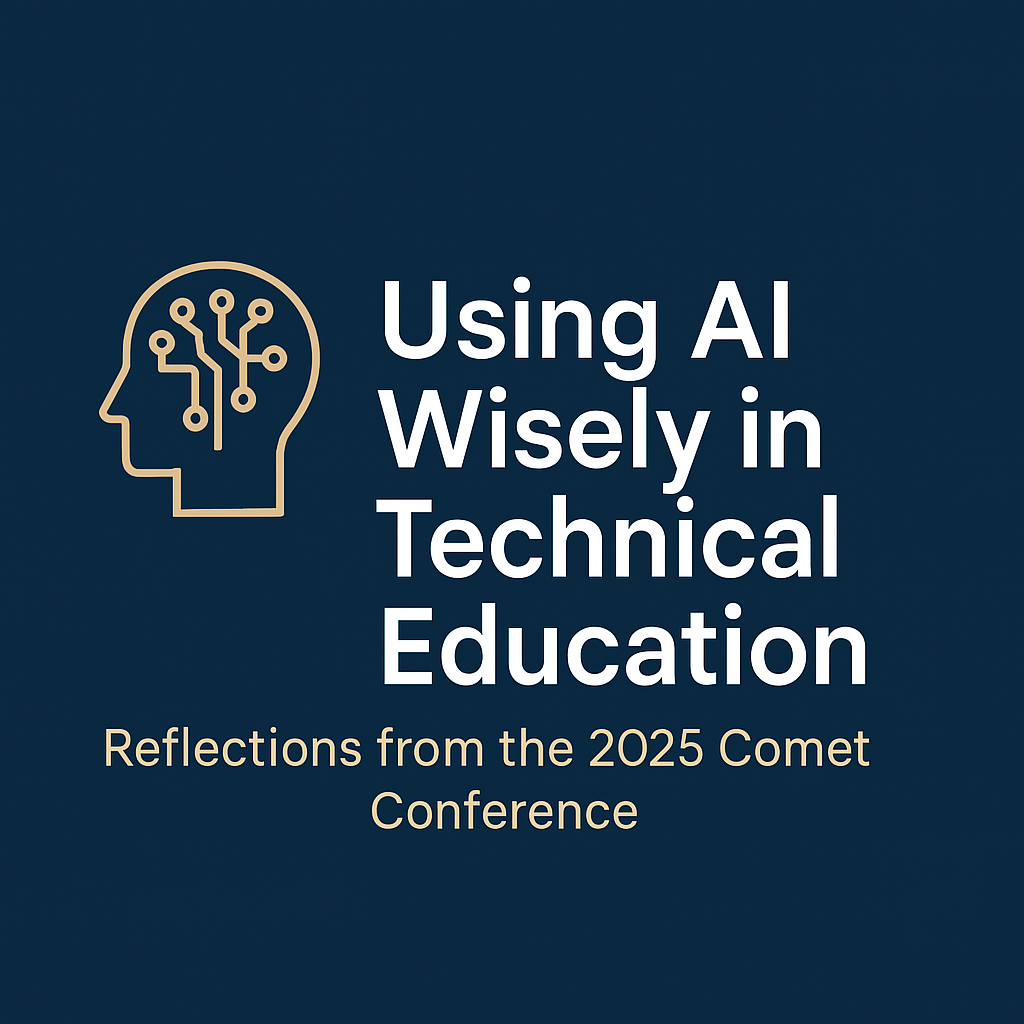Using AI Wisely in Technical Education: Reflections from the 2025 Comet Conference
This post explores key takeaways from the 2025 Comet Conference on Modern Educational Technology, focusing on how AI can be used responsibly in technical education. It highlights the importance of critical thinking, understanding AI's limitations, and practical strategies for integrating AI tools into HVAC training and troubleshooting.
Matt Pasley
4/1/20253 min read


Using AI Wisely in Technical Education: Reflections from the 2025 Comet Conference
On March 14th, I had the opportunity to attend the Comet Conference on Modern Educational Technology, hosted by my college. As someone who’s been steadily growing in my understanding and use of AI, the event offered a rich space for reflection, inspiration, and practical application—especially for those of us in technical education.
What AI Is—and What It’s Not
There’s a lot of confusion around what AI actually is. At the conference, one key message resonated deeply with me:
AI is not a search engine.
AI is not a fact-checker.
AI is not human.
AI is an incredibly advanced tool—a predictive algorithm trained on enormous datasets to generate what it determines is the most likely and relevant response based on the prompt it’s given. But that doesn’t mean it’s infallible.
In fact, I was surprised to learn that models like GPT still get things wrong nearly 40–50% of the time, depending on the complexity of the context. These errors are often called “hallucinations”—convincing, but incorrect information that the model presents as fact.
Bias in AI and Why Objectivity Matters
Another major point that stuck with me: biases are baked into the training data. This means that the answers AI gives are influenced not just by what it's trained on, but also by how you frame your questions.
Bring a biased or emotionally charged prompt into your interaction, and you're likely to receive a biased or skewed response in return. That's why we must be intentional in our approach—asking objective, clear questions and treating AI not as a final authority, but as a tool to help refine our own thinking.
How I'm Integrating AI into My HVAC Education Programs
As an HVAC instructor, I’m excited about AI’s potential in technical education—not to replace skilled reasoning, but to enhance it. Here’s how I’m beginning to use it in my classroom:
1. AI-Powered Troubleshooting Research
Students will learn how to upload service manuals or technical documents into AI and use it to help them locate specific troubleshooting procedures or system data. This mirrors what they’ll encounter in the real world—on-the-job situations where information must be found quickly and efficiently.
2. Student-Generated Test Banks
I’ll be uploading a manufacturer’s manual into an AI system and creating a list of technical questions based on the document.
Students will be assigned to search the manual themselves to find the answers—either independently or in small groups. This builds both manual literacy and AI-assisted research skills.
Then, students will reverse the process:
They’ll choose a manual of their own, generate a set of questions, and ask AI to locate the answers. This exercise reinforces:
Document comprehension
Precise question formation
AI-assisted verification and critical review
3. Enhancing—Not Replacing—Critical Thinking
At its core, I want my students to learn how to think, not just what to think. AI can be used as:
A tutor in areas they’re already learning
A creative advisor for solving complex problems
A suggestion engine for identifying inefficiencies and opportunities for improvement
But it should never become a replacement for real human reasoning. We must train our minds alongside these tools, embracing uncertainty and curiosity as catalysts for growth.
Final Thoughts
The 2025 Comet Conference reminded me of the delicate balance we must strike with AI. If used correctly, it can be a powerful asset in technical education, workforce training, and beyond. But we must stay rooted in critical thinking, objectivity, and ethical decision-making.
I'm grateful to my college for putting on this event and look forward to implementing these insights into my programs. Whether it's helping technicians improve their troubleshooting skills or training the next generation to use AI wisely, the goal is to grow together—smarter, stronger, and more curious than ever before.
Want to connect and follow along as I share the things I'm studying and learning? I share practical life advice, financial insight, entrepreneurship, programming, and more!
https://substack.com/@mattpasley
